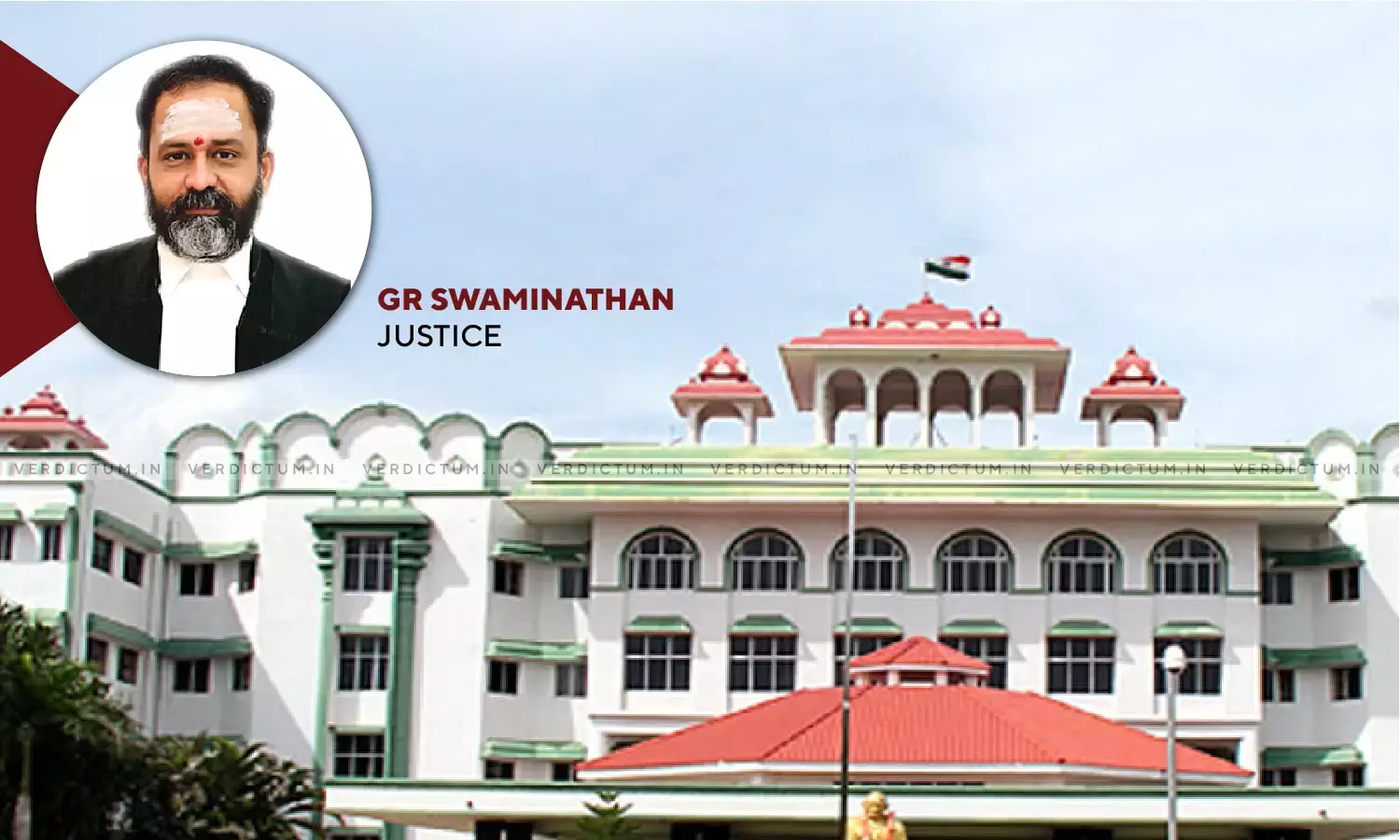Dealing Only With Unmanufactured Tobacco Does Not Breach Statutory Provisions Of Food Safety & Standards Act: Madras HC

The Madras High Court while allowing a writ petition held that since the petitioners are dealing only with unmanufactured tobacco, they have not breached any of the statutory provisions of the Food Safety and Standards Act 2006.
Justice G R Swaminathan stated –
"The State has monopolized the privilege of selling liquor. The government of Tamil Nadu is raising huge revenue through liquor sale. Tamil Nadu State Marketing Corporation (TASMAC), a wholly government owned company, has thousands of retail outlets throughout the State. The argument of the State anchored on Article 47 is like devil quoting the scripture or pot calling the kettle black. I am not rejecting this contention on the ground of whataboutery. Nicotine is inherent in tobacco and its content in the tobacco leaf has not gone up on account of spraying of jaggery water. Regulation 2.3.4 only mandates that tobacco and nicotine shall not be used as ingredients in any food products. Since the petitioners are dealing only with unmanufactured tobacco, they have not breached any of the statutory provisions."
Advocate V. Raghavachari appeared on behalf of the petitioner and Additional Advocate General R Baskaran appeared for the respondent.
Brief Facts of the case –
The petitioners dealt with unmanufactured tobacco. The nature of trade involved the purchase of tobacco leaves from farmers, spraying of jaggery water on them, cutting them into small pieces, and packing. It was alleged by the Food Safety and Drug Administration Department that the raw tobacco leaves have been subjected to the manufacturing process for human consumption. They, therefore, passed the impugned orders prohibiting their sale.
The godowns where the articles were kept were sealed after taking samples. According to the department, raw tobacco undergoes a fundamental change as a result of the liquoring process and emerges as a distinct product that makes the same edible.
The Department contended that such a process adopted by the petitioner is prohibited under Regulation 2.3.4 of Food Safety and Standards (Prohibition and Restrictions on Sales) Regulations 2011.
Hence, the petitioners filed the writ petition in the High Court.
The Court noted –
"I went through the test reports of the respondents. A mere look at the same would reveal that on account of the sprinkling of jaggery water, there has been no change in the Nicotine content. Jaggery water is sprayed only to ensure that the leaf does not turn brittle. In other words, the Nicotine content in the tobacco remains the same before and after the liquoring process. Nicotine is inherent in the product itself. It is not as if the petitioners have added Nicotine as an ingredient in the food product. The State has not prohibited the cultivation of tobacco as it has done in the case of Ganja."
The Court while relying upon the case of Pachiappa Chettiar v State of Madras (1963) 2 MLJ 71 further held that the petitioners are only dealing with unmanufactured tobacco and that they have not been mixing the same in any food product.
The High Court after hearing the State's contention regarding the consumption of tobacco being injurious to public health further observed –
"The above contention of the State would have impressed me if the State has enforced Article 47 in its totality. Unfortunately, that is not the case."
Accordingly, the Court allowed the Writ Petitions and quashed the impugned orders.
Cause Title – M/s ES Mydeen and Co. v. The Designated Officer and others
Click here to read/download the Judgment


